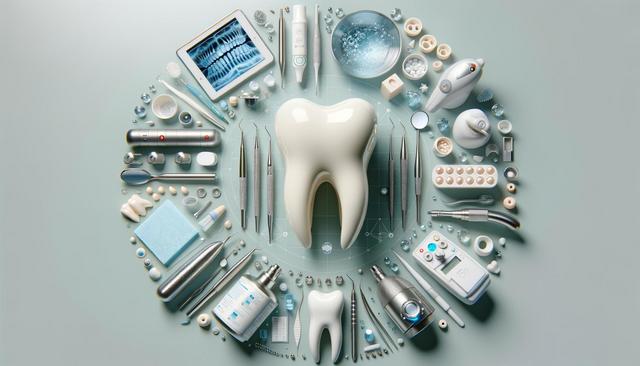Understanding Modern Dental Solutions
Over the past few decades, dental care has undergone a significant transformation. Modern dental solutions now go beyond traditional fillings and dentures, offering advanced methods to address tooth loss and oral health concerns more effectively. Among these innovations, dental implants stand out as a reliable and long-lasting option for many patients. They are designed to mimic the function and appearance of natural teeth, providing both functional support and aesthetic value. These implants integrate with the jawbone, which not only ensures stability but also helps maintain bone density—a key factor often overlooked in other tooth replacement methods.
Today’s dental technologies incorporate digital imaging, 3D printing, and minimally invasive procedures, all of which contribute to better diagnostics and treatment outcomes. Patients who once had few options now have access to tailored treatment plans that suit their specific needs. With these developments, dental implants have become one of the most preferred choices for those seeking a dependable solution to tooth loss.
How Dental Implants Work
A dental implant consists of three main components: the implant post, the abutment, and the crown. The post, usually made of titanium, is surgically inserted into the jawbone and acts as the root of the new tooth. Over time, the implant fuses with the bone in a process called osseointegration, creating a stable foundation for the replacement tooth.
The process typically involves multiple stages:
- Surgical placement of the implant into the jawbone
- A healing period to allow the bone to integrate with the implant
- Attachment of the abutment and custom crown
This procedure may take a few months to complete, but the results are often worth the time investment. Once in place, dental implants function like natural teeth and require only routine dental care to maintain. Their ability to remain firmly anchored makes them a practical choice for individuals seeking a permanent fix for missing teeth.
Benefits of Choosing Dental Implants
Dental implants offer numerous advantages compared to other tooth replacement options. One of the most notable benefits is their durability. While bridges and dentures may need replacement or adjustment over time, implants are designed to last for many years with proper care. Additionally, they provide excellent comfort, as they are securely fixed and do not move or shift like removable options.
Other key benefits include:
- Improved speech and chewing ability
- Preservation of facial structure and jawbone integrity
- Natural appearance that blends with existing teeth
- Enhanced self-confidence and quality of life
Because dental implants are anchored directly into the jawbone, they help prevent bone loss—a common issue after tooth extraction. This makes them not only a cosmetic solution but also a functional improvement to long-term oral health.
Who Can Benefit from Dental Implants?
While dental implants are suitable for many people, not everyone may be an immediate candidate. Good candidates typically have healthy gums, sufficient bone density, and a commitment to maintaining oral hygiene. However, even patients with bone loss may still qualify through procedures like bone grafting or sinus lifts, which can prepare the jaw for successful implant placement.
Dental implants may be an appropriate solution for:
- Adults missing one or more teeth
- Patients dissatisfied with traditional dentures
- Individuals seeking a more stable and long-term oral solution
- People concerned about bone loss and facial structure changes
A thorough evaluation by a dental professional, including imaging and oral health assessments, will help determine whether implants are the right option. Advances in implant dentistry continue to expand the number of people who can benefit from this treatment.
Maintaining Your Dental Implants
Like natural teeth, dental implants require consistent care to ensure their longevity. The good news is that maintaining implants is relatively straightforward. Daily brushing and flossing, along with regular dental check-ups, are typically sufficient to keep implants in excellent condition. Unlike dentures, there is no need for adhesives or special cleaning solutions.
To protect your investment in oral health, consider the following maintenance tips:
- Brush twice a day with a soft-bristled toothbrush
- Use non-abrasive toothpaste to protect the crown surface
- Floss daily to remove plaque buildup around the implant
- Schedule professional cleanings and check-ups at least twice a year
With proper care, dental implants can serve as a stable, long-term solution for replacing missing teeth. They offer a combination of aesthetic appeal and functional support that contributes to overall dental wellness.
Conclusion: A Reliable Option for Lasting Oral Health
For individuals seeking a dependable, natural-looking solution to tooth loss, dental implants present a compelling choice. With their ability to integrate with the jawbone and support oral health, they go beyond surface-level fixes to offer structural and aesthetic benefits. As part of the broader landscape of modern dental solutions, implants represent a permanent fix that can enhance both comfort and confidence in daily life.
If you’re considering your options for tooth replacement, discussing dental implants with a qualified professional could be a step toward long-lasting oral health and improved quality of life.



Leave a Reply